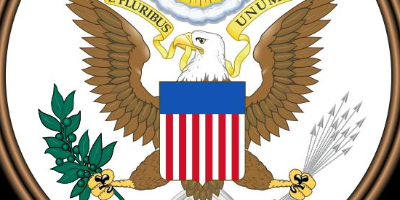nov 2, 1824 - Election of 1824
Description:
This election placed Democratic-Republican John Quincy Adams as the 6th president over his opponents, Andrew Jackson, William H. Crawford, and Henry Clay. John C. Calhoun also ran early in the election, but dropped out to successfully run for vice president. Crawford was the official Republican nominee, but it was disregarded by the other candidates. Monroe's vice president, Daniel D. Tompkins, declined to run based on his lack of popularity and health issues. When all the ballots were cast, Jackson was determined to have won a plurality of both the popular and electoral vote, but no one won a majority. Under those circumstances, it was up to the House of Representatives to decide the new president between the top three candidates. This discounted Clay, even though he would have had a strong chance of being elected in Congress if he was eligible. Before the vote, Clay was invited to Adams' house for a private meeting, raising suspicion as to what they may have discussed, especially among Jackson. After that, the House voted, determining Adams to be the winner, receiving 13 votes to Jackson's 7 and Crawford's 4. The president-elect then proceeded to appoint Clay to be Secretary of State, often considered a stepping stone for the presidency. Jackson was furious, claiming that Adams and Clay had conspired in their secret meeting to strike a "corrupt bargain" to win the presidency. He said that Clay lent his support to Adams to secure him the presidency, who would then give Clay a powerful position that he could use to attain the office later. Jackson believed he was the rightful winner of the election, as he had received more popular and electoral votes than any other candidate. He resigned his Senate seat in protest and formed his own political party, the Democrats. He would use this "corrupt bargain" theory in the 1828 election to discredit Adams and bolster his own support immensely.Main issues: Monroe Doctrine
Voter turnout: 26.9%
Significance: First election to record the popular vote
First election in which there were four major candidates in the running
Only election in which candidates of the same party ran against each other
Only post-12th Amendment election in which no candidate received a majority of the electoral college
Victor did not receive a majority of the popular vote.
Added to timeline:
Date:
nov 2, 1824
Now
~ 201 years ago
